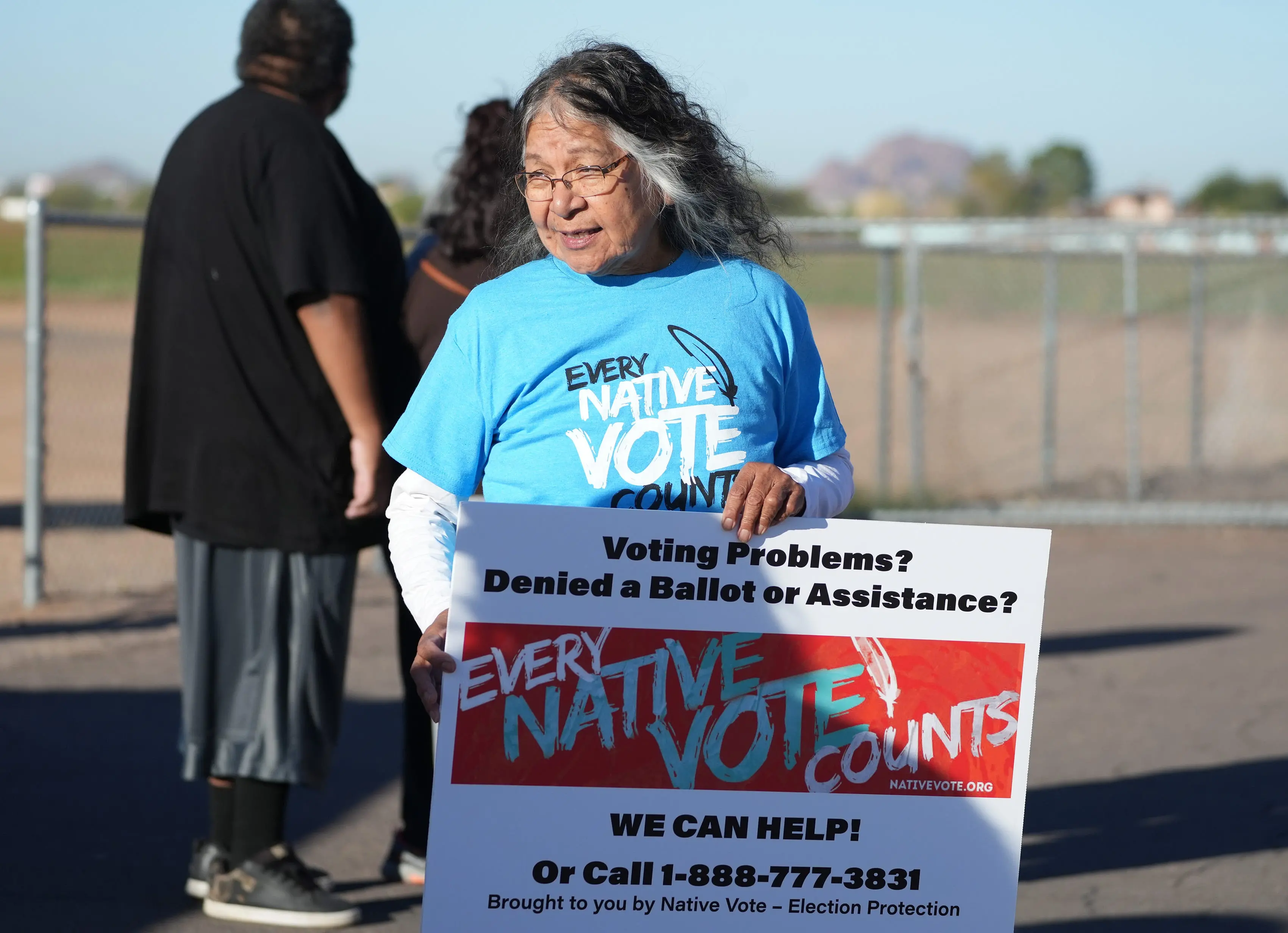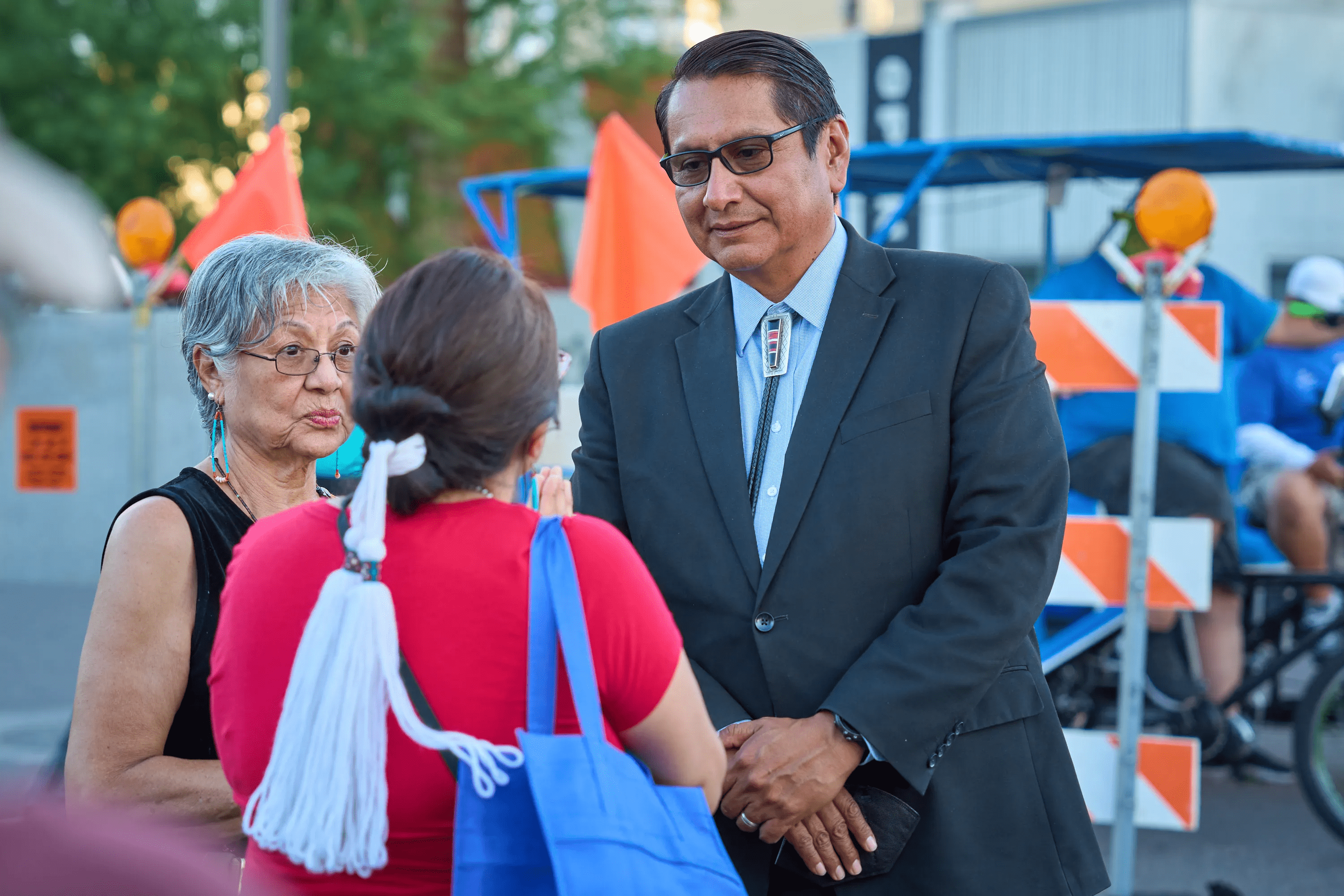
Journalists Write Toward More Transparent and Inclusive Midterm Elections
As I write this, U.S. midterm election votes are still being counted. At stake is the composition of Congress and many state governments across the country with power over millions of people’s lives. Unfortunately, as we wait, we’re also forced to hope that politicians and partisans don’t resort to violence and a repeat of the far-right claims of election fraud from 2020.
That’s why it’s so important for the Pulitzer Center to continue to support trustworthy reporting on real—or deliberately hyped—claims about elections and democracy.
The Center’s support enabled The Arizona Republic to buy and analyze registration and early midterm voting data in Arizona, which could help dispel rumors. The state was roiled in 2020 by false cheating claims after Joe Biden, a Democrat, won the presidential vote, a defeat Republican President Donald Trump and supporters refused to accept. This week, Arizona Republican gubernatorial candidate Kari Lake reacted to early returns showing her trailing with baseless attacks on “cheaters and crooks” and suggestions that if she lost, it would be due to fraud.
The Republic’s Pulitzer Center-supported project, Democracy on the Ballot, also enabled staff, including Indigenous journalists, to produce a wealth of stories from Arizona’s large tribal nations. Reporting revealed concerns that new and proposed restrictions on voter ID and mail-in ballots could suppress Native votes. Grantee Debra Utacia Krol also traced barriers Indigenous people face back to the struggle they waged to finally win the right to vote in 1948.
The Republic also provided a service by translating election stories into Spanish.
Also in Arizona, Pulitzer Center grantee and freelancer Jessica Pishko produced a story for Reveal about a national network of pro-Trump county sheriffs who baselessly argue that sheriffs possess authority to police voting. Deputies in Arizona and in other states have caused alarm with self-styled investigations of voters and the quizzing of voters at ballot drop boxes.
Delving into the origins of the movement, Pishko wrote, “The specter of coordination between legitimate law enforcement—which has the backing of law, courts and taxpayer-funded weapons—and militia-inspired vigilantes raises increasing concerns about voter intimidation heading into the midterm elections and beyond.”
Expect more from Pishko and other grantees on vital underreported stories.

Impact
The Pulitzer Center-supported project Sweet and Lowdown: A Tale of Misery and Wealth in the Sugar Industry, by Sandy Tolan, was cited by forced labor watchdogs in an open letter to the Biden administration. The Corporate Accountability Lab and 16 other labor rights organizations urge a hold on sugar imports from Dominican sugar producer Central Romana until the company addresses accusations of forced labor in its sugarcane fields. The letter references “paramilitary-style” guards employed by Central Romana to “intimidate and control workers.” Tolan exposed the night guards and other abuses in “Paramilitary-Guards Instill Fear in Workers in Dominican Cane Fields,” the final piece of his five-part series.
This message first appeared in the November 11, 2022, edition of the Pulitzer Center's weekly newsletter. Subscribe today.
Click here to read the full newsletter.











